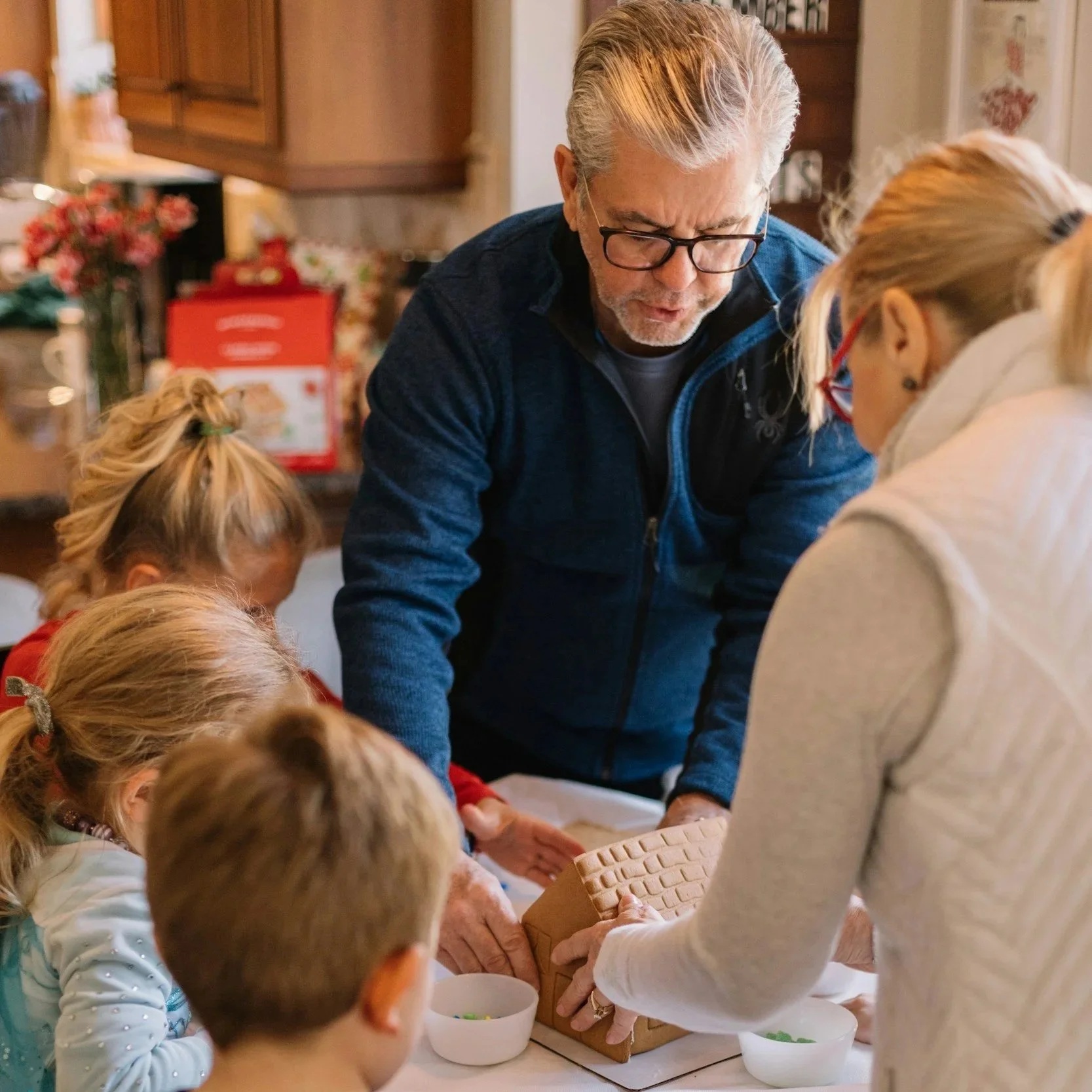Is It Banter or a Boundary Violation? Understanding Micro-Invalidations in Relationships
Many couples struggle to name what feels wrong when “jokes” keep landing painfully. One partner may feel hurt, dismissed, or shut down, while the other feels confused or defensive, insisting, “I was just joking.” This mismatch can leave both people feeling misunderstood.
How Playful Jokes Can Erode Emotional Safety in Relationships
Humor is often viewed as a sign of closeness. Couples tease, joke, and play as a way to bond. When it works, humor can create lightness, intimacy, and shared joy. But when it consistently misses the mark, it can quietly do the opposite.
New Year, New Me Energy
You might feel an urge to “get it right” this year. Or a sense of dread about setting goals you’ve abandoned before. Or resistance to the whole idea of resolutions altogether. These reactions aren’t signs of laziness or lack of ambition. Often, they’re signals from your nervous system that pressure doesn’t feel safe.
How to Prepare for 2026
As the calendar year comes to a close, many people feel a mix of pressure and fatigue. There’s an unspoken expectation that January should bring clarity, motivation, and transformation. But for many—especially those with trauma histories—the end of the year can feel emotionally loaded rather than inspiring.
How to Manage Relationship Stress During the Holidays
Even strong, loving relationships can feel strained during the holidays. Routines change, stress levels rise, and there’s often more togetherness with less rest. Add in family expectations, financial strain, travel logistics, and social obligations, and it’s easy for tension to build.
Ways to Practice Self-Care During the Holidays
For many people, the holidays are portrayed as joyful and meaningful—but behind the scenes, they can be deeply stressful. Increased expectations, disrupted routines, family dynamics, financial pressure, and social obligations all converge at once. If you have a trauma history, your nervous system may already be working overtime, making it harder to tolerate change, stimulation, and emotional complexity.
When NOT to Go Home for the Holidays
There’s an unspoken rule in our culture that going home for the holidays is simply what you do. It’s framed as a moral obligation rather than a choice—something tied to being a “good” child, partner, or family member. But many adults quietly dread the holidays. They feel anxious weeks in advance, emotionally depleted afterward, or stuck replaying old family dynamics they thought they had outgrown. If that’s you, the real question may not be “How do I survive going home?” but “Is going home actually supportive for me?”
How to Get Over Driving Anxiety
Driving anxiety can show up in many forms: white-knuckling the steering wheel on the freeway, feeling your heart race at every stoplight, or avoiding driving altogether because the thought alone feels overwhelming. You might feel embarrassed by it—especially if driving is something everyone around you seems to do without thinking. But the truth is, driving anxiety is common, and it doesn’t mean you’re weak or irrational.
How to Set Boundaries with Parents for the Holiday Season
Even as grown adults, many of us still feel small and powerless when interacting with our parents. Childhood survival wiring teaches us that safety comes from compliance, and those patterns don’t suddenly disappear once we turn 18. Setting boundaries with parents—especially around the holidays—can feel uncomfortable, emotional, and messy at first. But boundaries are not walls. They are bridges that support healthier, more respectful relationships.
Couples therapy in Seattle
Every relationship goes through moments of disconnection—periods where communication falters, conflict escalates, or you feel like roommates instead of partners. For many couples, these challenges don’t mean the relationship is broken; they simply signal that old ways of relating are no longer working. Couples therapy offers a space to slow down, understand what’s happening beneath the surface, and begin repairing emotional safety.
How to mask your emotions
For many adults, emotional masking is second nature. You might find yourself downplaying anger, hiding sadness, or suppressing joy to avoid conflict, judgment, or rejection. Often, this behavior isn’t about being “inauthentic”; it’s a survival mechanism developed in response to past experiences where vulnerability felt unsafe. For those with trauma histories, masking has kept you protected, but over time, it can create distance between yourself and others, as well as within your own sense of self.
Trauma therapist in Seattle
Many adults carry the effects of neglect, emotional abuse, or repeated stressful experiences from childhood, which can lead to anxiety, difficulty trusting others, chronic stress, and challenges in relationships. If you’ve experienced these effects, it can feel overwhelming to know where to start. As a trauma therapist in Seattle, I specialize in helping adults work through childhood trauma using evidence-based, trauma-informed approaches.
Scared of being vulnerable in a relationship?
Being in a relationship can be exhilarating, comforting, and deeply rewarding—but for many, it can also bring up fear. The idea of letting someone see your true thoughts, feelings, and needs can feel terrifying. If you’ve ever caught yourself holding back, keeping your emotions contained, or avoiding sharing your vulnerabilities with your partner, you’re not alone. The good news is that feeling cautious doesn’t mean you’re incapable of intimacy.
What's the best therapy for couples on the brink of divorce?
Relationships are complex, and even the strongest partnerships can experience periods of disconnect. When conflict becomes chronic, one or both partners may begin considering divorce. For couples on the brink, traditional therapy may feel like too little, too late—or worse, like it’s forcing reconciliation that one partner isn’t ready for. This is where understanding the difference between Emotionally-Focused Therapy (EFT) and discernment counseling becomes essential.
How to Get Over Flying Anxiety
For many people, the thought of stepping onto an airplane triggers intense anxiety. You may feel a racing heart, shortness of breath, or a tightness in your chest long before the plane even leaves the gate. Flying anxiety is surprisingly common, yet it can feel isolating if your friends or family seem perfectly comfortable in the air. The good news is that with trauma-informed approaches, it’s possible to address the root causes and develop strategies that allow you to fly with confidence.
Are Attachment Styles Permanent?
Attachment styles aren’t fixed traits—they’re flexible strategies your mind and body use to navigate relationships. By understanding these strategies and practicing secure responses, especially through trauma-informed approaches like Emotionally-Focused Therapy (EFT), you can shift patterns and build deeper, more connected relationships. Real change happens when you actively engage in therapy with a trained professional.
How to Deal with a Narcissistic Parent
It’s common to feel drained, anxious, or guilty around a parent who is emotionally manipulative, critical, or dismissive. Maybe you find yourself constantly apologizing, second-guessing your choices, or avoiding contact to prevent conflict. These experiences are more common than many adult children realize, and the impact can ripple into your relationships, self-esteem, and even physical health.
Couples Therapy - The Show
It’s easy to be fascinated by shows like Couples Therapy and hope we can learn how to fix our own relationships from watching them. But real therapy isn’t about observing—it’s about engaging and doing the work in session. Couples therapy helps partners navigate patterns, improve communication, process past hurts, and reconnect emotionally. Common themes include trust issues, communication breakdown, unresolved trauma, and differing attachment styles. By living the experience with a trained therapist, couples can develop deeper understanding, stronger bonds, and healthier relationship patterns.
EMDR vs Brainspotting
EMDR and Brainspotting are both highly effective therapies for trauma recovery, but they use different techniques to help individuals process and heal from traumatic memories. EMDR focuses on bilateral stimulation to reprocess trauma, while Brainspotting uses eye positions to access deep emotional material. Both therapies aim to help you process trauma, reduce emotional distress, and promote emotional healing. In this blog, we explore how both approaches work, when one might be preferred over the other, and why working with a therapist trained in both methods can offer a comprehensive healing experience.
How to Understand Avoidant Attachment in Relationships
If you've ever been told you're "emotionally unavailable," or found yourself instinctively withdrawing in relationships when things start to feel too intimate, too needy, or even just "too much," you're not alone.
In this post, we’ll dive into what avoidant attachment is, why it leads to the tendency to withdraw in relationships, and how to challenge these patterns in a healthy, compassionate way. We’ll also explore how healing from these behaviors can lead to more fulfilling and emotionally secure relationships, both with yourself and with your partner.



















